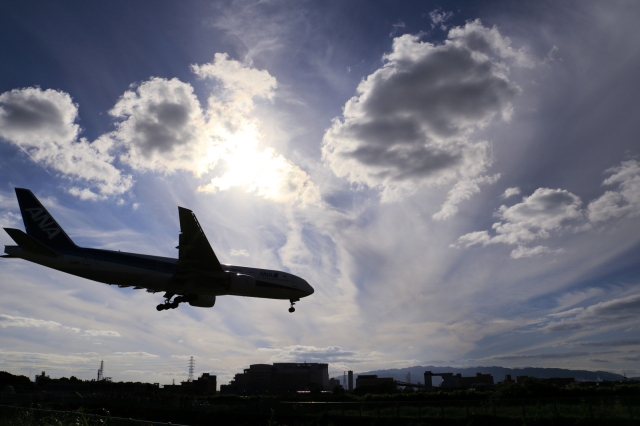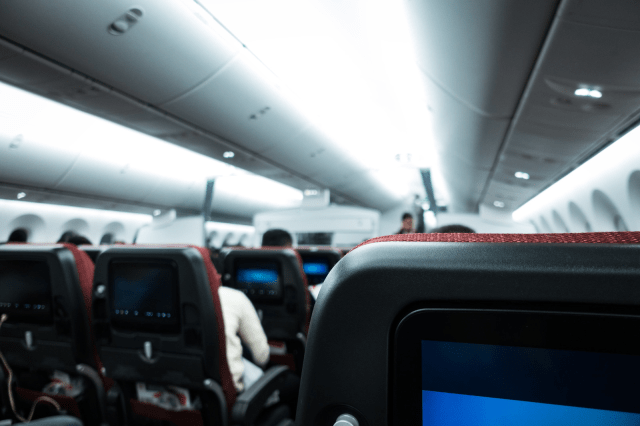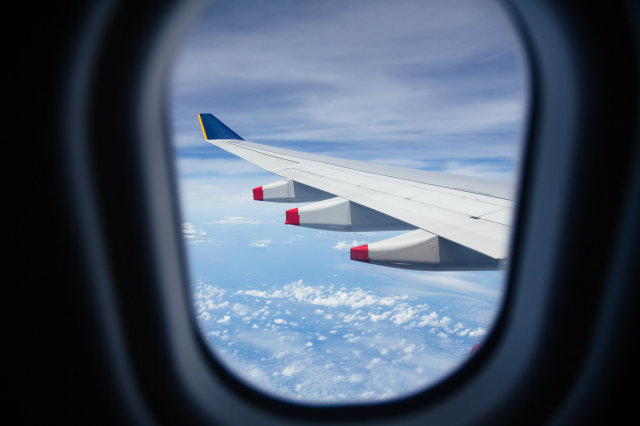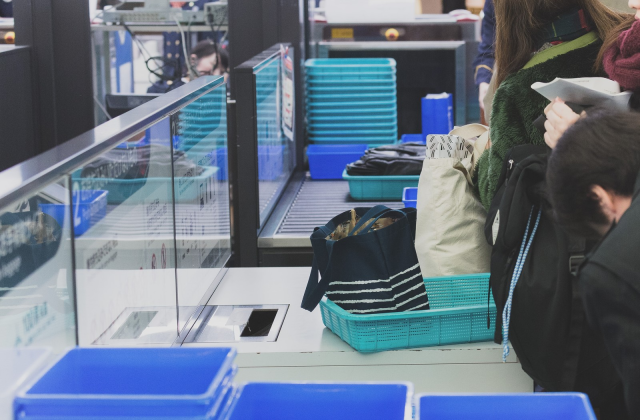
Selfish and unfriendly, or quietly respectful?
The Japanese division of travel provider Expedia recently conducted a survey, polling a total of 18,237 travelers from 23 different countries who had ridden an airplane or stayed in a hotel within the last year. But Expedia wasn’t interested in their travel destinations so much as the style of their journeys.
Specifically, Expedia wanted to know whether or not the respondents are the type to strike up conversations with strangers sitting next to them on airplanes. The most outgoing travelers were those hailing from India, where 60 percent of travelers say they’ll start talking to the person seated next to them on a plane, even if they’ve never met before.
Most likely to start talking to stranger in neighboring seat on airplane
● India: 60 percent
● Mexico: 59 percent
● Brazil: 51 percent
● Thailand: 7 percent
● Spain: 46 percent
But where did Japan land on the list? At the very bottom, with only 15 percent of Japanese travelers saying they initiate chitchat with strangers on a plane, a wide gap from even second-to-lowest Hong Kong.
Least likely to start talking to stranger in neighboring seat on airplane
● Korea: 28 percent
● Australia: 27 percent
● Germany: 26 percent
● Hong Kong: 24 percent
● Japan: 15 percent
As a matter of fact, Japanese travelers showed a low level of interaction with their fellow-yet-unacquainted air travelers across the board.
Most likely to offer assistance to stranger trying to put luggage into overhead bin
● Australia: 50 percent
Least likely
● Japan: 24 percentMost likely to offer travel recommendations to other passengers on plane
● India: 38 percent
Least likely:
● Japan: 3 percentMost likely to give up spot in security checkpoint for someone who’s running late for their flight
● Brazil: 31 percent
Least likely:
● Japan: 5 percent
This doesn’t necessarily mean that Japanese travelers are unfriendly or unkind, however, since cultural and even geographic elements are likely at play here.
Japanese culture has always emphasized not bothering others, and so many Japanese travelers will err on the side of caution in refraining from initiating conversations with strangers, in acknowledgement of the fact that the person may not be in the mood to talk. One could also see Japanese people staying quiet on airplanes as an extension of the way they stay quiet on trains, buses, and other shared modes of transportation in Japan. It’s also worth taking into consideration that international Japanese air travel involves long-distance flights into or out of the island nation, which raises the odds that passengers want to quietly relax or get some sleep. Meanwhile, a large portion of domestic Japanese air travel is business-related (the country’s convenient high-speed rail service is the go-to choice for domestic leisure travelers), and being essentially “at work” while traveling is another reason many might choose not to bother their airplane seat neighbor.
Then there’s the linguistic factor. The nations most likely to strike up conversations, help with luggage, or offer recommendations were Australia and India, one a native-English-speaking country, and the other one where English is widely spoken. Expedia’s survey data includes both international travelers as well as domestic ones, and the odds that any given passenger on a plane will speak English are far higher than that they’ll speak Japanese. It’s likely that a number of Japanese travelers refrain from chatting with other passengers at least in part because they don’t expect to have a mutually understandable language, and likewise don’t want to step in and start handling someone else’s belongings (luggage intended for the overhead bin) without first being able to verbally express that they’re trying to help.
As for Japanese travelers being less likely to give up their spot in the security check line? That’s also probably due to a mix of linguistic and societal factors. Again, with Japanese being a comparatively less-spoken language than many others, many Japanese travelers would lack confidence to convey “You can have my spot” to a passenger who’s in a hurry. There’s also the fact that Japan is a largely rule-abiding society, and travelers might assume they’re not allowed to step out of order once they’ve entered the line. And last, but certainly not least, Japanese society and workplaces tend to be extremely organized. Security lines at Japanese airports are administered in an amazingly efficient manner, rarely taking more than a few short minutes, and so it could simply be that Japanese travelers don’t expect a few spots in the security line to make a big difference in how long it takes a traveler to get through the process, and so don’t feel the situation warrants much urgency.
Of course, as with any set of statistics, it’s important to remember that the numbers aren’t iron-clad for all people. Yes, I’ve been seated near Japanese people on flights who didn’t say a single word other than food or drink orders from take-off to landing, but I’ve also encountered ones who enthusiastically asked others about their home countries and recommended things to see and do in Japan. Still, Expedia’s data shows that, in general, your Japanese plane neighbor might not be the one to start the conversation ball rolling.
Source: PR Times via Niconico news/Kyarikone via Jin
Top image: Pakutaso
Insert images: Pakutaso (1, 2, 3, 4)
● Want to hear about SoraNews24’s latest articles as soon as they’re published? Follow us on Facebook and Twitter!





 End-of-the-line exploring in Japan: Visiting Hashimoto Station
End-of-the-line exploring in Japan: Visiting Hashimoto Station Remote airport in Shimane serves up the best honey in all Japan: Airport Honey!
Remote airport in Shimane serves up the best honey in all Japan: Airport Honey! Locked and blocked! Japanese people don’t trust others on social media, survey finds
Locked and blocked! Japanese people don’t trust others on social media, survey finds Foreign travelers now spend more money in Japan than ever before, surprise country at top of list
Foreign travelers now spend more money in Japan than ever before, surprise country at top of list A funny thing happened on the way to Japan: Guess that anime song!
A funny thing happened on the way to Japan: Guess that anime song! Foreigner’s request for help in Tokyo makes us sad for the state of society
Foreigner’s request for help in Tokyo makes us sad for the state of society Red light district sushi restaurant in Tokyo shows us just how wrong we were about it
Red light district sushi restaurant in Tokyo shows us just how wrong we were about it McDonald’s new Happy Meals offer up cute and practical Sanrio lifestyle goods
McDonald’s new Happy Meals offer up cute and practical Sanrio lifestyle goods Anime girl English teacher Ellen-sensei becomes VTuber/VVTUber and NFT
Anime girl English teacher Ellen-sensei becomes VTuber/VVTUber and NFT Celebrate another year of life by putting it in jeopardy with this birthday candle flower
Celebrate another year of life by putting it in jeopardy with this birthday candle flower Historical figures get manga makeovers from artists of Spy x Family, My Hero Academia and more
Historical figures get manga makeovers from artists of Spy x Family, My Hero Academia and more French Fries Bread in Tokyo’s Shibuya becomes a hit on social media
French Fries Bread in Tokyo’s Shibuya becomes a hit on social media The top 5 places to see the sun set in Japan
The top 5 places to see the sun set in Japan Studio Ghibli releases new action figures featuring Nausicaä of the Valley of the Wind characters
Studio Ghibli releases new action figures featuring Nausicaä of the Valley of the Wind characters How did samurai swords and armor change over time?【Part 1】【Photos】
How did samurai swords and armor change over time?【Part 1】【Photos】 Japanese ramen restaurants under pressure from new yen banknotes
Japanese ramen restaurants under pressure from new yen banknotes All-you-can-drink Starbucks and amazing views part of Tokyo’s new 170 meter-high sky lounge
All-you-can-drink Starbucks and amazing views part of Tokyo’s new 170 meter-high sky lounge New private rooms on Tokaido Shinkansen change the way we travel from Tokyo to Kyoto
New private rooms on Tokaido Shinkansen change the way we travel from Tokyo to Kyoto Studio Ghibli glasses cases let anime characters keep an eye on your spectacles
Studio Ghibli glasses cases let anime characters keep an eye on your spectacles Tokyo Tsukiji fish market site to be redeveloped with 50,000-seat stadium, hotel, shopping center
Tokyo Tsukiji fish market site to be redeveloped with 50,000-seat stadium, hotel, shopping center Beautiful Ghibli sealing wax kits let you create accessories and elegant letter decorations【Pics】
Beautiful Ghibli sealing wax kits let you create accessories and elegant letter decorations【Pics】 Studio Ghibli releases Kiki’s Delivery Service chocolate cake pouches in Japan
Studio Ghibli releases Kiki’s Delivery Service chocolate cake pouches in Japan New definition of “Japanese whiskey” goes into effect to prevent fakes from fooling overseas buyers
New definition of “Japanese whiskey” goes into effect to prevent fakes from fooling overseas buyers Our Japanese reporter visits Costco in the U.S., finds super American and very Japanese things
Our Japanese reporter visits Costco in the U.S., finds super American and very Japanese things Studio Ghibli unveils Mother’s Day gift set that captures the love in My Neighbour Totoro
Studio Ghibli unveils Mother’s Day gift set that captures the love in My Neighbour Totoro New Japanese KitKat flavour stars Sanrio characters, including Hello Kitty
New Japanese KitKat flavour stars Sanrio characters, including Hello Kitty More foreign tourists than ever before in history visited Japan last month
More foreign tourists than ever before in history visited Japan last month New Pokémon cakes let you eat your way through Pikachu and all the Eevee evolutions
New Pokémon cakes let you eat your way through Pikachu and all the Eevee evolutions Sales of Japan’s most convenient train ticket/shopping payment cards suspended indefinitely
Sales of Japan’s most convenient train ticket/shopping payment cards suspended indefinitely Sold-out Studio Ghibli desktop humidifiers are back so Totoro can help you through the dry season
Sold-out Studio Ghibli desktop humidifiers are back so Totoro can help you through the dry season Japanese government to make first change to romanization spelling rules since the 1950s
Japanese government to make first change to romanization spelling rules since the 1950s Ghibli founders Toshio Suzuki and Hayao Miyazaki contribute to Japanese whisky Totoro label design
Ghibli founders Toshio Suzuki and Hayao Miyazaki contribute to Japanese whisky Totoro label design Doraemon found buried at sea as scene from 1993 anime becomes real life【Photos】
Doraemon found buried at sea as scene from 1993 anime becomes real life【Photos】 Tokyo’s most famous Starbucks is closed
Tokyo’s most famous Starbucks is closed One Piece characters’ nationalities revealed, but fans have mixed opinions
One Piece characters’ nationalities revealed, but fans have mixed opinions We asked a Uniqlo employee what four things we should buy and their suggestions didn’t disappoint
We asked a Uniqlo employee what four things we should buy and their suggestions didn’t disappoint Princesses, fruits, and blacksmiths: Study reveals the 30 most unusual family names in Japan
Princesses, fruits, and blacksmiths: Study reveals the 30 most unusual family names in Japan Advice for new employees in Japan: Never take your temperature
Advice for new employees in Japan: Never take your temperature Renting a Girlfriend in Japan: Relationship goals or just plain awkward? 【Video】
Renting a Girlfriend in Japan: Relationship goals or just plain awkward? 【Video】 Pokémon Go at the American Embassy in Japan: A Police Officer Appears!
Pokémon Go at the American Embassy in Japan: A Police Officer Appears! Lazy stay-home innovation from Japan: the addictive cloud nap mat
Lazy stay-home innovation from Japan: the addictive cloud nap mat Mitsubishi’s solution for stressed office workers in Japan: fake skylight video displays
Mitsubishi’s solution for stressed office workers in Japan: fake skylight video displays The battle over 11/11 is underway in Japan: Pocky vs every other business
The battle over 11/11 is underway in Japan: Pocky vs every other business Travelers can now fly in a Pokémon airplane in Japan
Travelers can now fly in a Pokémon airplane in Japan Prefectural rivalry in Japan: Survey reveals which areas compete against each other, and why
Prefectural rivalry in Japan: Survey reveals which areas compete against each other, and why Japanese people most like to drink green tea with their chips, incredibly dull survey finds
Japanese people most like to drink green tea with their chips, incredibly dull survey finds Quite possibly the greatest food bargain in Japan: tasty convenience store pasta for less than a buck
Quite possibly the greatest food bargain in Japan: tasty convenience store pasta for less than a buck We try out the fifth most popular restaurant among foreigners in Japan: Italian restaurant Nino
We try out the fifth most popular restaurant among foreigners in Japan: Italian restaurant Nino Funny signs in Japan: 7-Eleven enters the ring with a humorous notice for drivers
Funny signs in Japan: 7-Eleven enters the ring with a humorous notice for drivers Hey, you can’t do that! — 10 things that will get you on China’s no-fly list for life
Hey, you can’t do that! — 10 things that will get you on China’s no-fly list for life Japanese travel agency reveals summer 2022’s most popular destinations domestically and abroad
Japanese travel agency reveals summer 2022’s most popular destinations domestically and abroad Here are the 10 richest companies in Japan: Can you guess which is number one?
Here are the 10 richest companies in Japan: Can you guess which is number one? W.T.F. Japan: Top 5 most difficult kanji ever【Weird Top Five】
W.T.F. Japan: Top 5 most difficult kanji ever【Weird Top Five】
Leave a Reply